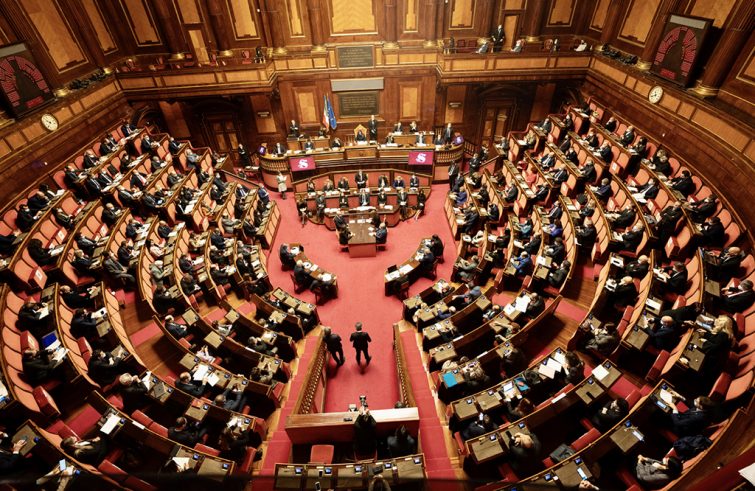
It sparked heated political debate. However, it finally became clear that the purpose of the Holy See’s “Note Verbale” to the Italian government concerning the proposed Italian legislation known as the “Zan bill” (after Alessandro Zan, the legislator who sponsored it, TN) was a contribution to dialogue, with a view to adopting legislation respectful of freedoms. This applies specifically to those freedoms enshrined in the Italian Constitution and further defined in the Concordat agreements, namely: freedom of expression, freedom of education and, needless to say, freedom of religion.
This is in line with the position of the Italian Bishops’ Conference, as Cardinal Parolin pointed out, recently expressed in very clear terms on 28 April last in a Note of its Presidency. However, formal dialogue on Concordat issues is the competence of the Holy See, which has acted in its own capacity.ì
Those who have been wringing their hands and denouncing “interference” have had to find peace of mind, as have those who attempted to question, with a seemingly devious agenda, the Vatican’s internal procedures and those governing the Holy See and the Italian Bishops’ Conference. With the implicit misconception that the Pope had not been informed of the step taken by his “foreign minister” or that the Holy See had sought to delegitimize the Italian bishops.
The Pope is not a picture card to be drawn in an ideological debate. Pope Francis’ Church is guided by constructive dialogue, requiring openness, sincerity, respect and transparency in terms of principles and benchmarks. Indeed, as it stands, the proposed text of the bill is unbalanced and ambiguous in its definitions of a highly sensitive bio-political issue.
Among many expert opinions, a highly regarded jurist such as Gabriele Carapezza, quoted in the Italian newspaper Giornale di Sicilia, has accurately argued that “the second part of the Zan bill fails to properly reconcile it with Constitutional rights marking the legitimate boundaries of legislative intervention”, recalling a relevant debate involving all the great democratic countries, which has been the object of unequivocal rulings by both the European Court of Human Rights and the US Supreme Court.
As called for first by the Italian Bishops’ Conference, and later, with diplomatic authority, in the Holy See’s “Note Verbale” approved by Cardinal Parolin, advocating recourse to prudence – the greatest virtue of politicians and legislators – is ultimately a means to ensure that a decision will stand the test of time and will not simply be the result of short-lived political majorities or short-term ideological trends.
Formal pronouncements, as the ones mentioned above, are coupled with manifold – and indeed informal – forms of interlocution. Thus much can still be done to reach a solution that can be termed a “win-win solution”, i.e. one whereby the rights (and duties) of each and every one are guaranteed. Such is the spirit of cooperation for the common good cited as the underlying rationale of the 1984 Concordat Agreements, which confirmed their effectiveness as an excellent instrument of Italian democracy.










